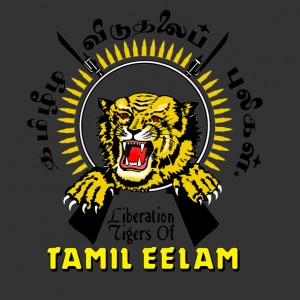International community unsure about how far to nudge Sri Lanka on toning down aggression
 Bangkok
Bangkok
(Thailand), Mar. 19 : Even as the fighting between Sri Lankan troops
and the LTTE continues in northeast Sri Lanka, an international debate
is raging over how far to push Colombo on toning down its aggression
vis-a-vis the rebels.
The Red Cross, which normally prefers quiet persuasion to arm-twisting,
has raised the alarm over a humanitarian crisis in the remaining pocket
of rebel-held territory, where makeshift hospitals are out of needed
drugs and food supplies are dwindling.
But according to the Christian Science Monitor, this outcry has failed
to sway Sri Lanka''s government, which dismisses its critics as biased
and reliant on propaganda from the LTTE, which has fought a bloody war
for self-rule since 1983.
Colombo has defended the military''s conduct in pushing back the rebels
and say the onus is on the LTTE to let Tamil civilians flee the
conflict, not use them as shields or force them to fight.
Behind the diplomatic exchanges are divisions within the international
community over the proper response to apparent violations of
international law by both sides.
Some United Nations officials have muffled internal reporting from the
war zone, to the frustration of aid workers and human rights activists
who accuse the UN of cowardice in the face of a belligerent government.
UN High Commissioner for Human Rights Navi Pillay broke ranks on Friday.
In a stern statement, she said that 2,800 civilians may have died and
more than 7,000 been injured since January 20. Most of these casualties
occurred in the 7-1/2-mile-long no-fire zone and were the result of
Army shelling.
Certain actions by the warring parties "may constitute violations of
international human rights and humanitarian law," she added.
Sri Lankan officials promptly denied the allegations.
The country's Minister of Human Rights Mahinda Samarasinghe criticized
the use of "unsubstantiated statistics" in an "unprofessional
statement," and questioned why the data were similar to those used by
pro-LTTE websites.
In fact, the sensitive data aired by Pillay were based on first hand
daily reporting by UN national staff and aid workers trapped in the
no-fire zone.
The briefing paper said several weeks of food and medicine shortages
had led to deaths from malnutrition and from preventable diseases.
Senior UN officials in Sri Lanka are reluctant to go toe-to-toe with
the government in its hour of near-victory over the LTTE, say diplomats
and aid workers.
Donors are also frustrated by the tactics of the LTTE, which is
forcibly recruiting boys and girls to fight and moving its heavy guns
into the no-fire zone, effectively provoking retaliation against
civilians.
Far from laying down their arms, the rebel leadership may be preparing to make a final stand.
Foreign Secretary Palitha Kohona, a former UN diplomat, has described the Human Rights Commission report as partisan. (ANI)